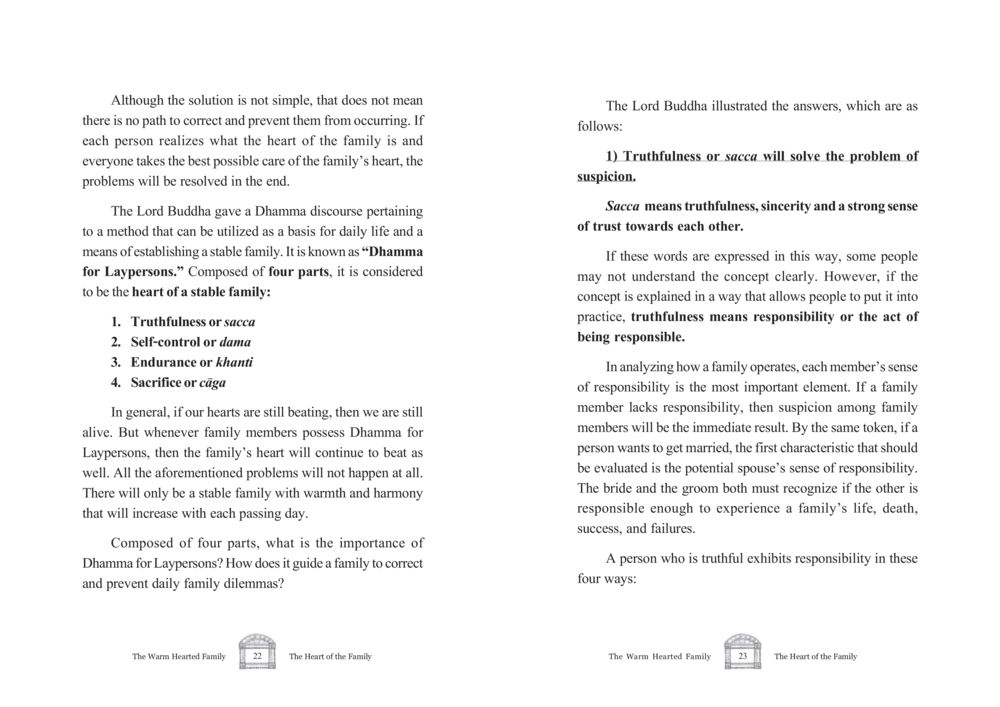Dhamma for Laypersons: Building a Stable Family : หน้า 12/207
The Warm Hearted Family : หน้า 12/207 Explore the teachings of the Lord Buddha on establishing a stable family through Dhamma for Laypersons, emphasizing truthfulness, self-control, endurance, and sacrifice.
1 ครั้ง

สรุปเนื้อหา
The text discusses a method for fostering a stable family as taught by the Lord Buddha through 'Dhamma for Laypersons', which includes truthfulness (sacca), self-control (dama), endurance (khanti), and sacrifice (caga). It highlights the importance of these virtues in preventing family dilemmas and ensuring harmonious relationships among family members. By embodying these principles, families can eliminate suspicion, strengthen responsibility, and create an environment of warmth and stability. The document emphasizes the significance of each family member's role in maintaining trust and accountability to avoid conflicts. Through these teachings, families are encouraged to cultivate a heart that beats steadily with love and understanding.
หัวข้อประเด็น
-Dhamma for Laypersons
-Truthfulness in families
-Self-control and family dynamics
-Endurance as a family value
-Sacrifice in family relationships
ข้อความต้นฉบับในหน้า
หน้าหนังสือทั้งหมด















































































































































































































